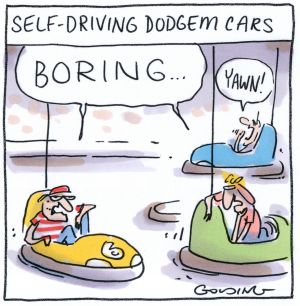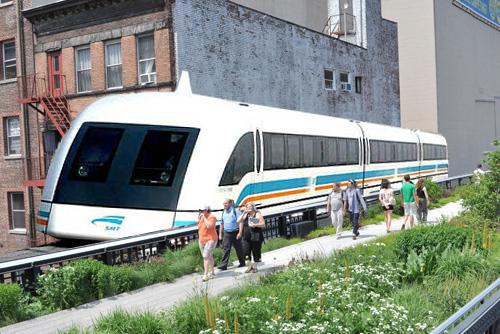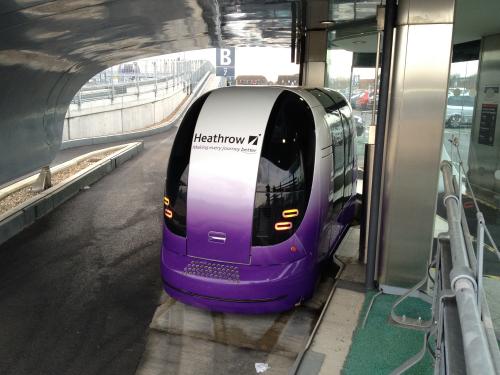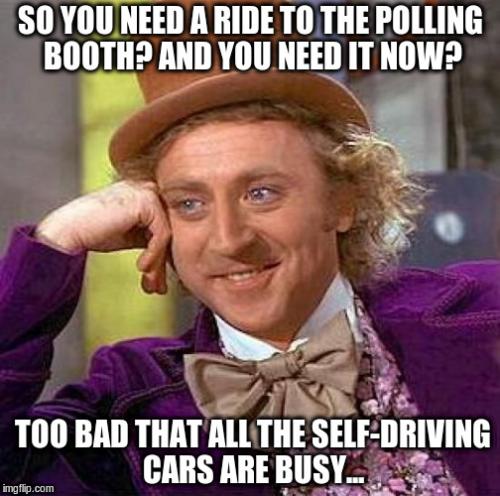The REAL name, and value, of self-driving cars
The first issue with self-driving cars may be in how you CALL them.
According to many people, a huge, if not THE main long-term problem with self-driving cars is how to write software that concretely “helps those cars make split-second decisions that raise real ethical questions”. The most common example is the self-driving car variant of the Trolley Problem: “your self-driving car realizes that it can either divert itself in a way that will kill you and save, say, a busload of children; or it can plow on and save you, but the kids all die. What should it be programmed to do?"
In my opinion, this way to look at the problem is greatly misleading. First of all…
The personal, privately owned car is dying anyway

and self-driving will only accelerate this process. Advertising is still powerful, but can only do so much to hide realities like:
- private cars have huge impacts on the environment and public health
- being blocked in traffic sucks the life out of people
- several current “car electronics” have no real need to exist. Example: expensive “infotainment systems”… which invariably have less features than the smartphones of all their passengers. The push for “connected cars” makes even less sense
- the car electronics that give us safety, instead, are already making driving more mindless, that is duller, every year, and tinkering with cars almost impossible. Cars that can really do everything by themselves loudly say that now, really any idiot can “drive”. They are quite likely to remove any pleasure not just in driving, but also in owning them
- youngsters already know all of the above, if not consciously. That’s why they aren’t getting driver licenses as much as their parents. Besides…
- a car designed only for self-drive can cost much less: goodbye wheel, pedals, mirrors, handbrake, parking cam, big dashboard…
- if a car has a driver that never sleeps nor complains, it would be really, really idiotic to not save even more, by making it drive all the time. It would be really idiotic, that is, to get in debts to own such a boring nanny, rather than sharing it.
- (added on 2017/10/02): average drivers age is increasing, which means “more accidents coming, unless we give drivers to all seniors citizens”
See what I mean? The first misleading part of the Trolley Problem is the word “your”: in the current socio-environmental landscape, the smartest a car becomes, the less rational and glamorous it becomes to own one.
Self-driving cars, you’re calling them wrong
The ethical stress caused by the “Trolley Problem” may disappear, or at least be hugely diminished, if we just started calling self-driving cars with what should have been their real name since the beginning, and handled them accordingly:

The real name of self-driving cars must become something like SOMT: Shared, On-Demand, Micro… TRAIN (1)
Trains have been around much longer than computers, without any need for “ethical software”, for an extremely simple and obvious reason: trains only move in their own, clearly marked, physically separated areas. They don’t have to share their own paths and intersections with unpredictable humans, able to walk or drive wherever they please. If all self-driving cars could hit were other, equally programmable, self-driving cars, they’d all be immensely easier to “program”. Teach your brain to:
- read “self-driving car” as “train that doesn’t need traditional tracks or switches”,
- replace any image of many self-driving cars into that of some city-wide ULTra system

Reserved road = No Trolley Problem here, please move along
</em></u>
and not only the Trolley Problems almost disappears, but things start getting really interesting.
Calling self-driving cars “SOMTs” creates JOBS. Lots of REAL jobs
In order to treat self-driving cars as SOMTs we’ll have to create two physically distinct networks of “roads” (2): one for SOMTs and equally driverless public buses or trucks, and one for “human-powered traffic”, that is pedestrians, cyclists and similar. Those two networks would lie side by side, with lots of “micro-stations”, that is places where people would get on and off the SOMTs. Basically, treating self-driving cars as SOMTs means rebuilding cities from the ground up.
In other words, SOMTs may be the best and most realistic source of diffused prosperity and social stability, PLUS big environmental benefits, that could ever happen worldwide, in the next 10 or 20 years.
Of course, it would need politicians with the guts to find and allocate the money. But can you think of many other projects that would quickly create, with equal benefits for the environment, so many not outsourceable jobs, mostly accessible also to unskilled people, in any city? If so, please tell, we urgently need them.
The real risks of self-driving cars becoming SOMTs are…
Not the Trolley Problem for sure. SOMTs, and SOMTs-compatible cities will do a lot of good, but only if equipped with all the proper immaterial infrastructures.
A city where personal mobility only happens by means of SOMTS is a city in which whoever controls where each SOMT goes, and the tools to digitally book and pay one, can:
- know where any of us went last night
- prevent specific individuals, or specific groups of people, from getting where they want or need to be, at the right time

Imagine a city where everybody is guaranteed, for really cheap fees, the equivalent of a personal, 24/7 limousine service to drive them wherever they want, any time. Now imagine you can have that only through an Uber-like platform with the power to answer “sorry Sir, no SOMTs available right now” to all and only the people of a certain neighborhood, ethnic or income group, political orientation … who want to join a march, vote or just register to vote or have a job interview. Only the rich that may still afford their own private SOMT may escape such a control, and only partially anyway.
These are the real, ethical and social risks of SOMTs, not Trolley Problems. To avoid them, we’ll need stuff like:
- (city-level?) digital platforms for anonymous booking and payment of SOMTs
- regulations that:
- set minimum service levels for whoever wanted to offer a SOMT service in the city
- define clear rules about who, when and why may temporarily block SOMTs (example: firefighters may close the street of a major fire scene)
- provide transparent records about who, when, why enforced traffic limitations
- enforce interoperability and cooperation among SOMTs providers: all SOMTs, for example, should be able to use the same charging stations and parking slots, and exchange traffic information in real time
-
yes, that’s one ugly acronym. If you find a better one, please tell me and I’ll replace it, giving you the due credit.
-
Open Issue: how will we let ambulances, firefighters, police cars… move as quickly as possible in cities like those? Reserved lanes, probably? Suggestions welcome.
Who writes this, why, and how to help
I am Marco Fioretti, tech writer and aspiring polymath doing human-digital research and popularization.
I do it because YOUR civil rights and the quality of YOUR life depend every year more on how software is used AROUND you.
To this end, I have already shared more than a million words on this blog, without any paywall or user tracking, and am sharing the next million through a newsletter, also without any paywall.
The more direct support I get, the more I can continue to inform for free parents, teachers, decision makers, and everybody else who should know more stuff like this. You can support me with paid subscriptions to my newsletter, donations via PayPal (mfioretti@nexaima.net) or LiberaPay, or in any of the other ways listed here.THANKS for your support!